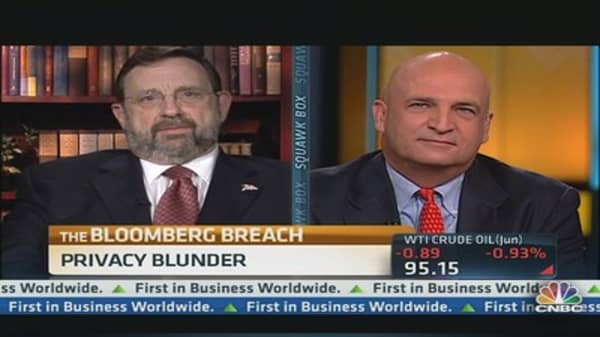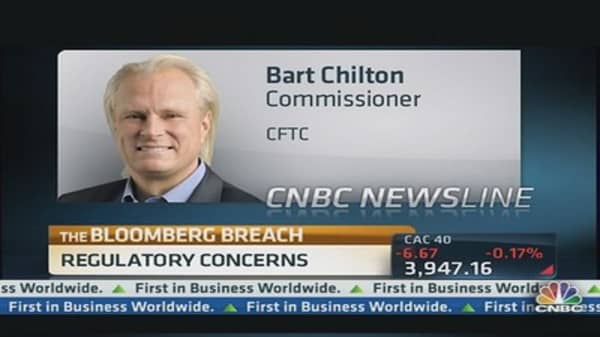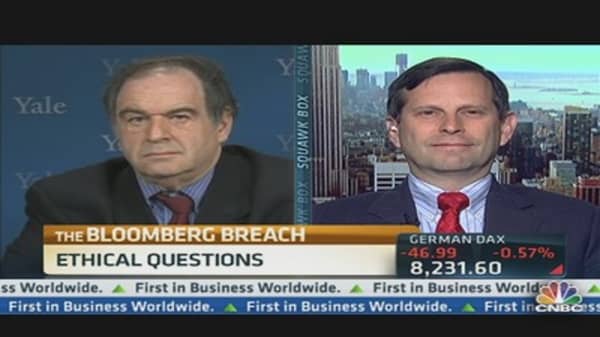An independent review is needed after Bloomberg's admission that its reporters had access to some proprietary client information on its data terminals, former SEC Chairman Harvey Pitt told CNBC on Monday.
The admission indicates an oversight failure at the company, said Pitt, who was chairman of the Securities and Exchange Commission under President George W. Bush.
"All we know is what the people who put all of this terrible activity in place are now telling us," Pitt said in a "Squawk Box" interview. "We just have Bloomberg's denials. And at this point, those aren't very credible."
In an op-ed, Matthew Winkler, editor-in-chief of Bloomberg News, wrote that the news division is holding itself accountable. He acknowledged, "Our reporters should not have access to any data considered proprietary. I am sorry they did. The error is inexcusable."
(Read More: Fed, Treasury Examining Bloomberg Use of Terminal Data)






